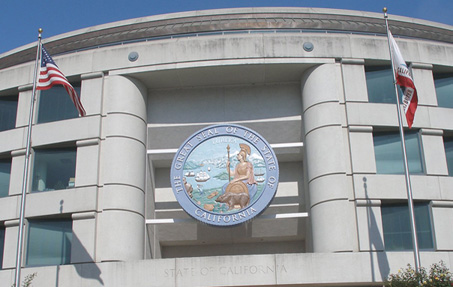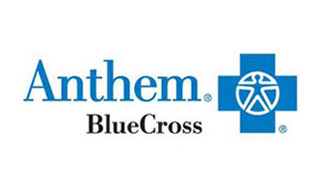Who Else Has Accessed Your Medical Data?
by Lisa Zamosky, Los Angeles Times

So far in 2015 alone, there have been more than 32 health data breaches as a result of hacking, according to the U.S. Health and Human Services Office for Civil Rights. “Health records are more valuable to identity thieves than financial records, and they can actually be sold at a premium on the black market,” [says one expert]. … It’s a more complicated crime to resolve than financial theft, with fewer protections in place to help patients whose information is stolen. … Medical identity theft can also dangerously cause someone else’s health data to get intertwined with yours. Read More ›
AB 573: Students Abandoned By Closure Of Corinthian Colleges Turn To Legislature

AB 573 would give all 13,000 former Corinthian students access to legal, financial and academic counseling to help them deal with some of the obstacles they face, such as retrieving their Corinthian files and determining whether the students are eligible to have their federal education loans discharged. The bill would fund outreach efforts to identify eligible students, and it would facilitate and encourage the transfer of academic credits earned at Corinthian Colleges to the California Community Colleges system. Read More ›
AT&T Making It Even Harder For You To Protect Your Privacy
by David Lazarus, Los Angeles TImes

In completing his company’s $49-billion acquisition of DirecTV last month, AT&T Chief Executive Randall Stephenson said it was “all about giving customers more choices.” He meant entertainment and service choices, but he could just as easily have been referring to the myriad of decisions customers will encounter … Read More ›
State Consumer Advocate To Pull Out Of San Onofre Nuclear Plant Settlement
by Ivan Penn, Los Angeles Times

A multibillion-dollar settlement over the closed San Onofre nuclear power plant took another blow Monday as the state consumer advocate said that he was withdrawing from the deal and would urge regulators to reopen the case. Joe Como … said Monday that he was “very disappointed” by a judge’s ruling Aug. 5 that Edison failed to report communication with regulators about a settlement. Como added that the judge did not go far enough and wrote an opinion that still gives too much latitude for utilities to communicate with regulators outside public view. Read More ›
State Bar Urged To Require Unaccredited Law Schools To Disclose Graduation, Dropout Rates
by Jason Song, Los Angeles Times

Legislators and legal experts are urging California bar officials to require the state’s unaccredited law schools to be more transparent to give prospective students a better idea of their chances of becoming an attorney. Read More ›
Will Uber Drivers Get Class-Action Status For Employment Case?
by Carolyn Said, San Francisco Chronicle

The case’s outcome also looms over other on-demand companies because workers deemed employees have mandates on wages and benefits that contractors do not. If the drivers win class-action status and ultimately prevail, Uber would be faced with a sweeping overhaul of its relationship with drivers that would “radically change” the app and challenge Uber’s business model. Read More ›
Judge Cites 10 Violations For Edison
by Jeff McDonald, The San Diego Union-Tribune

Southern California Edison on Wednesday was found to have violated rules prohibiting backchannel communications at least 10 times in its dealings with regulators over the failed San Onofre nuclear plant. Criminal investigators and others have been reviewing whether improper private communications have compromised the public proceedings of the utilities commission. Read More ›
State To Probe Peevey Party Proceeds
by Jeff McDonald, San Diego Union-Tribune

The soiree honored former California Public Utilities Commission President Michael Peevey, and funds were raised in the name of his successor, Michael Picker. The $250-a-plate event was held at the Julia Morgan Ballroom in San Francisco as consumer activists protested outside. Read More ›
Bigger May Be Better For Health Insurers, But Doubts Remain For Consumers
by Reed Abelson, New York Times

Anthem, which operates for-profit Blue Cross plans in 14 states, merging with Cigna, another large for-profit carrier, along with the planned deal for Aetna to join Humana, a smaller rival known for its private Medicare plans, would create two behemoths.
Along with the already enormous UnitedHealth Group, these companies would control nearly half of the American commercial health insurance market. … “Are these companies not big enough that they needed to be bigger?” [asked one insurance broker]. “They’re all huge.” Read More ›
Judge: Cellphone Tracking Requires A Warrant
by Ross Todd, The Recorder

“Cellphone users do not expect that law enforcement will be able to track their movements 24/7 for a sixty-day period simply because the users keep their cellphones turned on,” [U.S. District Judge Lucy Koh of the Northern District of California] wrote in a 46-page order issued Wednesday night. … “This is a welcome ruling that will provide clarity for the government and important privacy protections for the public,” [Linda Lye, a senior staff attorney at the ACLU Foundation of Northern California,] said. “Going forward, we should expect the government to seek a warrant for this information.” Read More ›
Facing Regulatory Roadblocks, Uber Ramps Up Its Lobbying In California
by Chris Kirkham and Tracey Lien, Los Angeles Times

Uber now spends more on lobbyists in California than Wal-Mart, Bank of America or Wells Fargo … in the top 3% of companies and organizations. … So far in 2015, Uber has paid about $200,000 to lobbyists. That’s more than 10 times the amount spent by the limousine industry and nearly four times greater than the taxi industry’s trade group. … A PUC administrative law judge decided earlier this month that Uber should be fined $7.3 million and suspended from operating in California. Read More ›
Anthem To Buy Cigna, Creating Biggest U.S. Health Insurer
by Ankur Banerjee and Ransdell Pierson, Reuters

Anthem Inc said on Friday it would buy Cigna Corp for about $54.2 billion, creating the largest U.S. health insurer by membership and accelerating the industry’s consolidation from five national players to three. … State insurance regulators and federal antitrust authorities are expected to scrutinize how the Anthem-Cigna and Aetna-Humana deals would affect competition for Medicare and individual and commercial insurance. Within a few hours of the announcement, several U.S. lawmakers and a leading physicians group said they feared the pending acquisitions would hurt consumers … Read More ›
Citibank Must Pay $700M Over Illegal Marketing, Collection Practices
by Ashlee Kieler, Consumerist

In all, the [Consumer Financial Protection Bureau] estimates seven million consumer accounts were affected by Citibank’s deceptive marketing, billing, and administration of debt protection and credit monitoring add-on products. … In addition to consumer relief, Citibank must pay a $35 million penalty to the CFPB’s Civil Penalty Fund, as well as end its unfair billing practices and cease engaging in the deceptive marketing of add-on products. … The CFPB contends Citibank and its subsidiaries relied on illegal billing practices, ultimately affecting nearly 2.2 million customer accounts … Read More ›